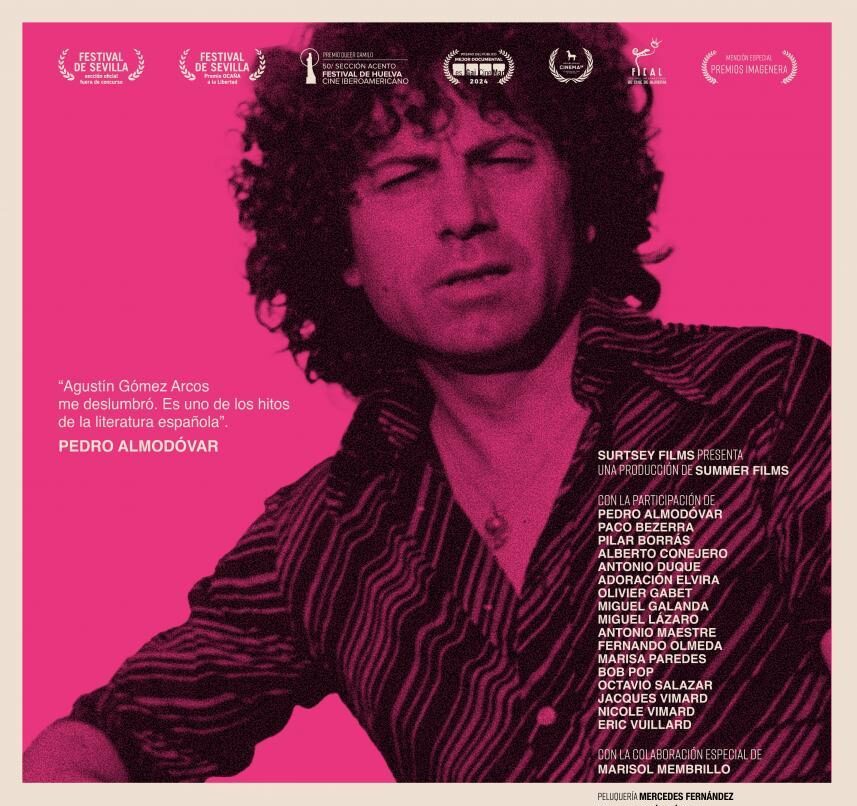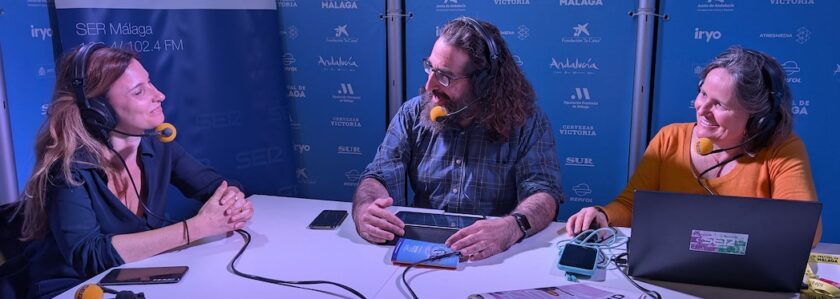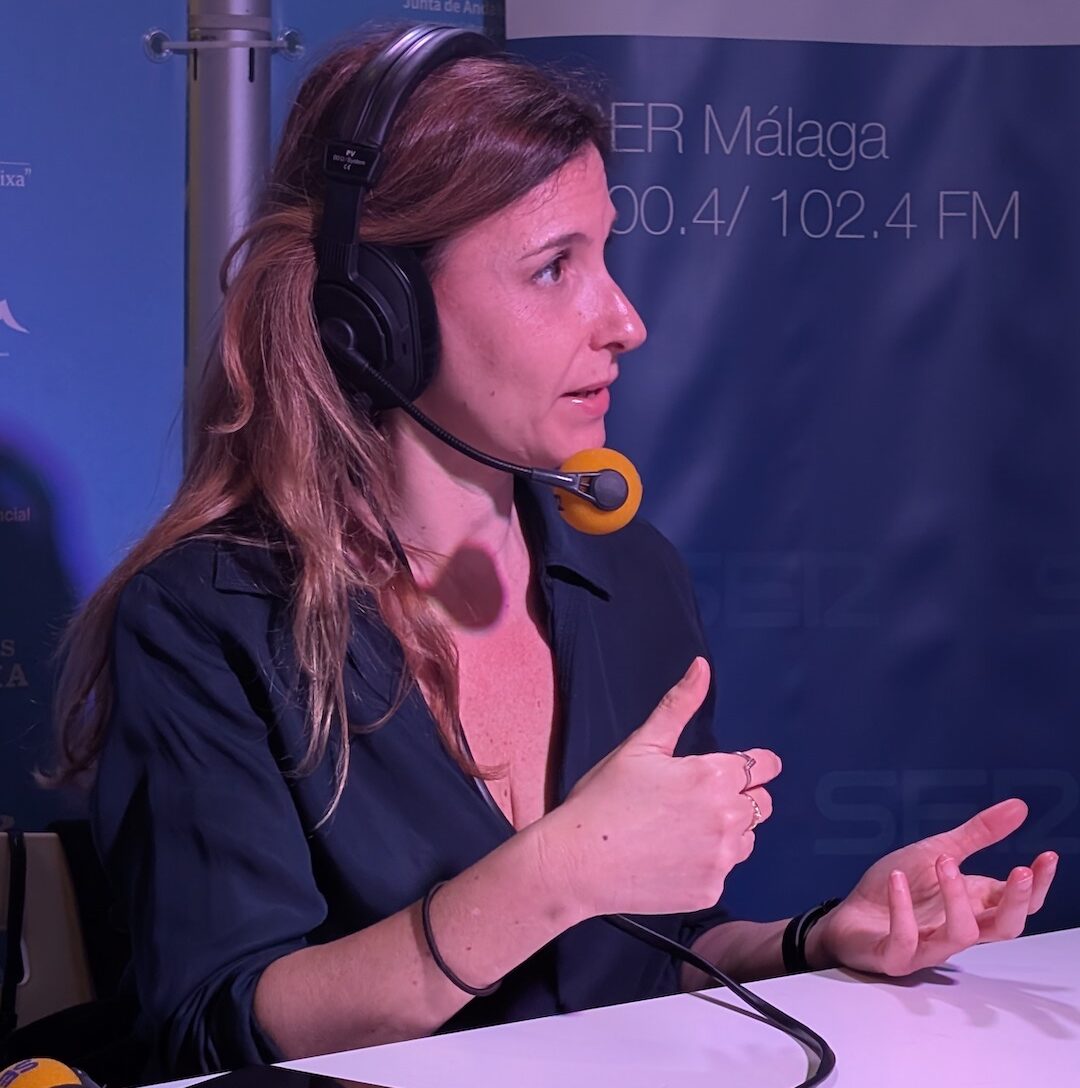
Within the framework of the 28th edition of the Malaga Festival, the documentary of the Sevillian director Laura Hojman was exhibited A free mana film that aims to shed light on the figure of the Almeria writer Agustín Gómez Arcos. Tremendously popular in France, Gómez Arcos suffered the ravages of censorship until his exile in the 60s and now a documentary recovers a figure silenced by Franco. We talked to Laura Hojman about her documentary, which arrives at theaters on March 28. A free man Explore the life and work of Agustín Gómez Arcos. His works have translated into more than twelve languages. It has been rediscovered by new generations and its legacy invites you to reflect on the recent history of our country through silences, lost stories, the role of culture and memory.
The director of A free man It is the Sevillian Laura Hojman. This is his fourth documentary, all focused on literary figures, some better known as Rubén Darío or Antonio Machado, and others more unknown such as María disturbed or Agustín Gómez Arcos. Many of the protagonists of the documentary tell how they discovered Agustín. How did you discover it?
I think, like almost the rest of the documentary participants, almost by chance. It was through an Andalusian companion who lives in France, María Díaz Valderrama, who is also a co -writer of this documentary. She told me about Agustín Gómez Arcos. Honestly, I had never heard of him. My documentary about Antonio Machado had just released, The blue daysand I was writing the script of Maria disturbed. I did not enter my plans to make another documentary about a writer, I wanted to change the third. But I got his books and that excited me, he hallucinated me. I wondered how it was possible that I, considering me a reader, would not know any of this. In addition, I found that there was a story not only about claiming an unique and very unknown author in Spain, but also about memory, our identity as a country, and how those silences or voices expelled configure us.

One of the documentary values, beyond the biographical aspect, is the reflection on how Agustín is a writer who is studied in institutes and schools in France, while here is totally unknown. We have lost a lot of intellectual and human capital because of Franco.
Completely. That is one of the issues of the documentary: why have we not known it? What are the causes behind that silence that expelled Agustín Gómez Arcos not only, but a very much cultural heritage that is also ours and that unfortunately we still do not know. Agustín represents all those dissident voices that were not comfortable during the dictatorship, but that today we have the responsibility to recover.
To talk about this figure, you have met in the film with important figures of the current cultural landscape, such as Pedro Almodóvar, Paco Becerra, Marisa Paredes …
Yes, I think it was almost the last thing Marisa Paredes did. I usually look for this in all my documentaries. I flee quite a lot from the figure of the expert because I distinguish very well what is a documentary cinematographic work of an academic or journalistic work. I do not intend to give all the answers and tell the whole life of the character, but to launch reflections or questions. I wanted to surround myself with readers of Agustín and that they bring this speech to the present, sharing what excites them, what moves them when they read Agustín.
In addition, Pedro Almodóvar and Marisa Paredes had lived with him, they had met him.
Yes, in fact Pedro Almodóvar wanted to adapt two of his novels to the cinema. In addition, in Pain and glorythe character of Antonio Banderas, who makes his alter ego, appears reading two works by Agustín Gómez Arcos. Pedro says it is very difficult to adapt to Agustín, which is too strong for today.
It was an advanced in time, right?
Completely. Fortunately, his work has recovered in Spain, now the new generations are reading. It began in 2006 when the Cabaret Voltaire publishing house began to translate and publish its novels for the first time in our country.
Agustín Gómez Arcos died having published fourteen novels in French and is a character consecrated in France, whose work is studied in institutes and universities.

Yes, it's amazing. When you start looking for files in Spain, I can't find anything, but in France I find a huge number of interventions on all televisions, in cultural programs, in literary gatherings. His works were edited in a pocket. He was a finalist to Goncourt, the most important literature prize in France. Once he does not win because Marguerite Duras and another Patrick Modiano takes it. He was not a cursed author at all, he was very popular in France.
One of the things that is told in the documentary is that he even has problems during the transition because he is an uncomfortable person, too answering even for that time.
Yes, that is one of the interesting topics of the documentary. That review that we can make today of that period of the democratic transition. Agustín returns thinking that now he can write everything he could not, that he can express himself, and meets a country that does not want to know anything about memory. It is in something else, in a more playful part, more fun, which is very good too, but that in the end makes the country not rebuild on memory, but perpetuate that forgetfulness and that silence. I think we are still suffering its consequences today. Maybe at that time what could be done, but today we can review this a bit.
The documentary A free man It opens on March 28. He is protagonist of a man who challenged the silences imposed by Franco through his work. Agustín Gómez Arcos gave voice to victims, dissidents, marginalized by the regime, homosexuals, women, exiles. Laura, it has been a pleasure to have you here and bring us to the Malaga Festival the memory of Agustín Gómez Arcos.
Thank you very much. It is always a pleasure to return to Malaga. I think I have come with all my documentaries and it is always wonderful to share it.
Source: https://cineenserio.com/laura-hojman-un-hombre-libre-agustin-gomez-arcos/


